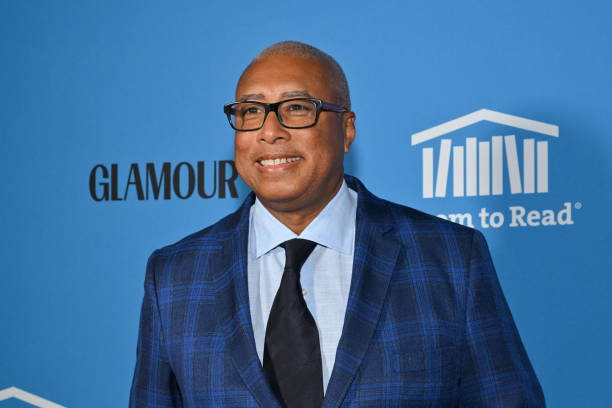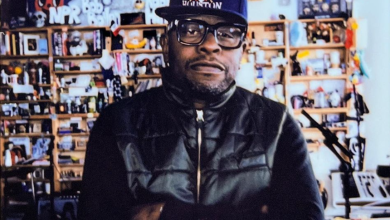‘We Didn’t Know What Was Wrong’


Bernie Williams, a former Major League Baseball star turned advocate, has made a lasting impact on the lives of many through his work in raising awareness about interstitial lung disease (ILD). His advocacy journey is deeply personal, rooted in the experience of losing his father, Bernabé Williams Sr., to a rare form of ILD known as idiopathic pulmonary fibrosis (IPF) in 2001. Williams’ story is not just one of triumph on the baseball field, but of perseverance and compassion off the field, as he helps others navigate the challenges of living with this disease.
A Personal Battle: Losing His Father to IPF
Williams’ father was a pivotal figure in his life, from teaching him how to play baseball to nurturing his love for music. In his prime, Bernabé Williams Sr. was active, energetic, and fully engaged with life. But as Williams recalls, everything changed when his father began exhibiting unexplained symptoms.
“He was very active. But at some point, we noticed he was getting a lot more tired than usual and developed a dry cough that wouldn’t go away. He started feeling fatigued, and all the things he used to do without a problem became a struggle,” Williams tells BlackDoctor.org.
They initially attributed it to age, but as the abnormalities continued, they knew Williams Sr. needed to see a doctor.
The journey to a diagnosis was long and fraught with frustration. It took five years for doctors in Puerto Rico to correctly identify that Williams Sr. was suffering from idiopathic pulmonary fibrosis, a form of ILD that causes scarring of the lungs and progressive respiratory decline. This delay in diagnosis meant that Williams Sr. spent years being treated only for his symptoms, without a clear understanding of the disease itself.
“Not many people knew about it there, so it was by chance that one of the doctors thought to test him for it. Unfortunately, by the time we found out he had IPF, we had been dealing with symptoms for a long time without addressing the actual cause,” Williams shares.
From there, Williams began educating himself on the condition. “We didn’t know much about idiopathic pulmonary fibrosis, and that was part of the struggle—finding the right information to help our dad,” Williams shares.
Realizing that his condition was progressive and that he wasn’t going to get better was heartbreaking for the Williams family. However, they decided to focus on making sure their father’s quality of life was as good as possible.
Advocacy and the Birth of “Tune In to Lung Health”
After his father’s death, Williams was determined to turn his pain into purpose. He became an advocate for lung health, specifically raising awareness about ILD and the importance of early diagnosis. His experiences led him to partner with the “Tune In to Lung Health” campaign, an initiative aimed at educating patients and caregivers about ILD.
The campaign seeks to not only spread awareness but also offer emotional and psychological support
“The program is all about education. We want to make sure people have the right information so they can make informed decisions about treatment and resources,” Williams says.
Music as Medicine: Healing Through Sound
Music, a lifelong passion for Williams, has also become a key component of the initiative. Through the program, patients and caregivers are encouraged to use music as a way to cope with the isolation, anxiety, and emotional toll of dealing with a chronic, life-threatening illness.
“Music can be a powerful tool in dealing with these emotions. We also have breathing exercises led by Eric Vetro, which are helpful for patients dealing with breathing difficulties caused by the disease. Plus, we’ve put together a playlist of some of my favorite songs, and we have educational content featuring interviews with Eric, myself, and patients. The idea is to raise awareness and lead people to the website, TuneInToLungHealth.com, for more information,” Williams shares.

A Return to Puerto Rico: Reconnecting Through Performance
In a touching tribute to his father and his heritage, Williams recently returned to Puerto Rico for a special performance near his hometown. The event was not only a homecoming for the former Yankee star, but also an opportunity to raise awareness about ILD in a community that may not have had access to the right information.
“It was amazing—a dream come true. It gave me a chance to reconnect with my roots. The performance was not far from where I grew up in the northern part of the island, and I saw many people I hadn’t seen in years. My friends were part of the band, so it was special on many levels,” Williams adds.
The performance was a way for Williams to bring his advocacy full circle.
“It was a great opportunity to spread awareness about the disease. Some people there may be suffering from the disease without even knowing it, so it was important for them to hear this information. For me, it was a great way to reconnect with my roots and honor my father through music,” Williams notes.
Lessons from a Caregiver: Advice for Families and Patients
Reflecting on his role as both a son and advocate, Williams shares some key lessons for other caregivers and patients facing ILD.
- Education is key. “Having the right resources can make all the difference in understanding what you’re dealing with,” Williams says.
- If you’re a caregiver, remember to take care of yourself. “For caregivers, it’s important to take care of themselves as well. My brother and my mom were the ones who took on the brunt of caregiving because I was often away playing baseball, but staying in communication and taking care of their own well-being was important. As a caregiver, you don’t want the patient to pick up on your stress or fatigue, so maintaining a positive outlook and utilizing all available resources is essential,” Williams adds.
Keeping His Father’s Legacy Alive
When asked about the most rewarding part of his advocacy work, Williams spoke about how proud he knows his father would be.
“I know he’s looking down, feeling proud of what I’m doing. Turning something tragic into something positive has been rewarding. It’s been important for me to share my story and put a face to this disease, but what’s really rewarding is meeting patients and hearing their gratitude. Whether it’s children or elderly people dealing with the same condition, it makes the work we’re doing feel worthwhile,” Williams concludes.
For more information on idiopathic pulmonary fibrosis and interstitial lung diseases, and to learn how you can get involved, visit TuneInToLungHealth.com.




